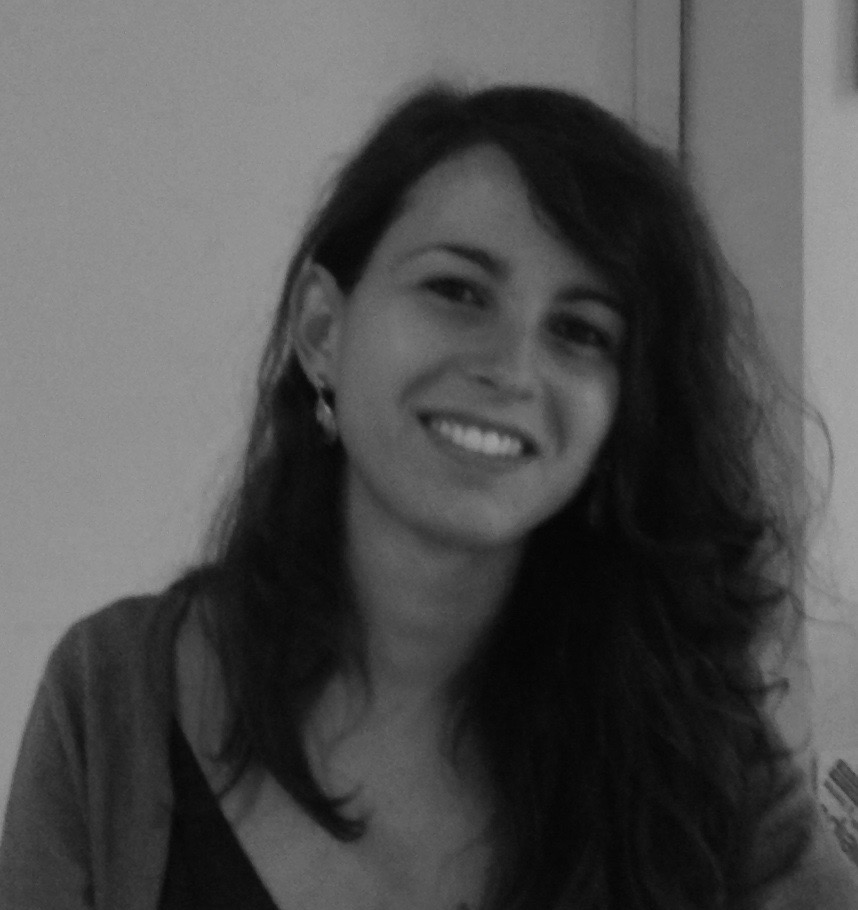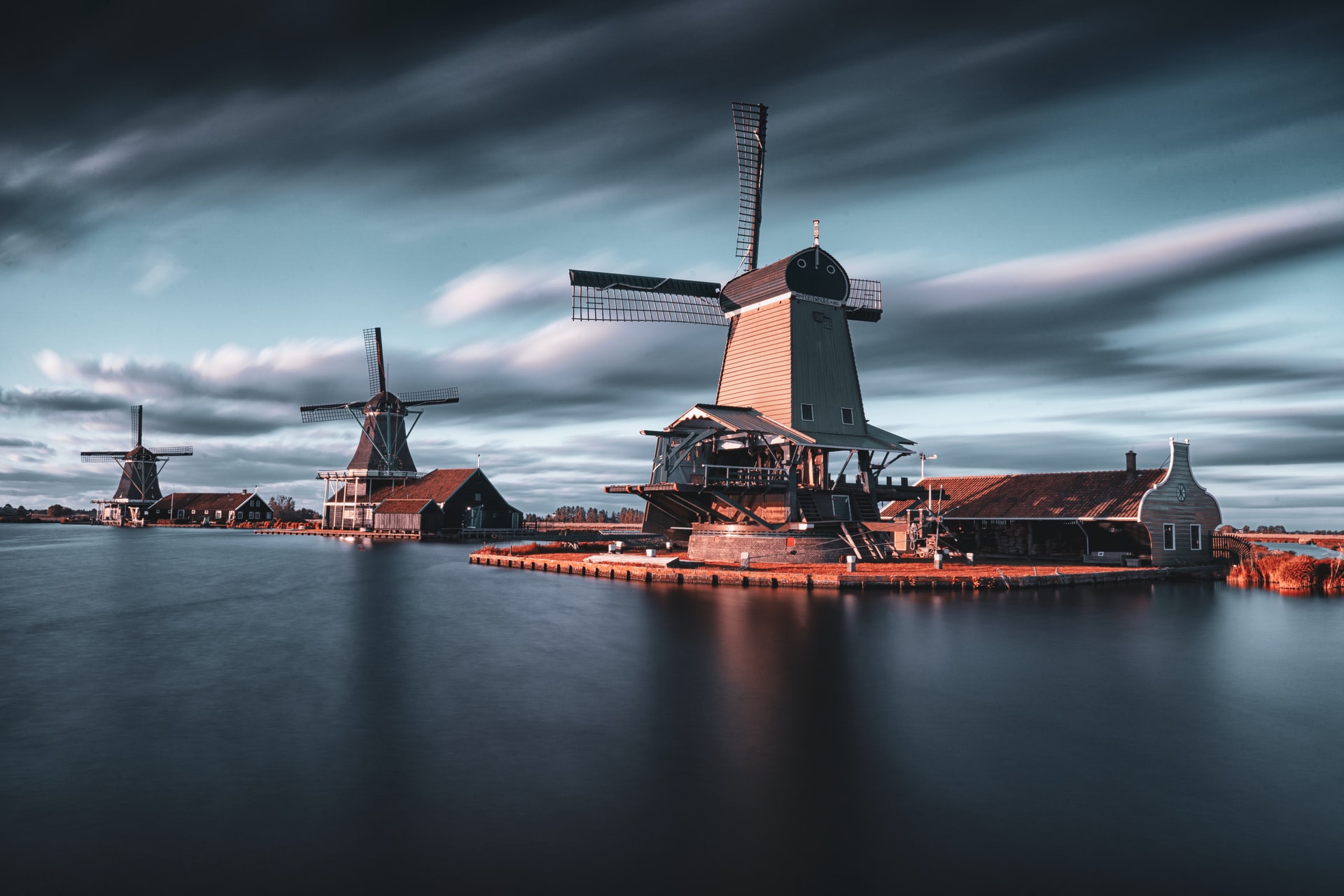Climate change increases the risk of flooding in regions around the North Sea due to rising sea levels, increasing river flows, and more intense precipitation. People and economies are at risk, but the Netherlands are responding, once again, with circular innovations, technology, and future-proof infrastructure.
Nederlanders houden van water – the Dutch love water. This frank statement appears many times throughout Schiphol Airport in Amsterdam, at every water refill station, prompting people to fill up their reusable bottles and fight plastic waste. In fact, as a country with over a quarter of its territory below sea level, over the decades the Netherlands has learned to make good use of water, starting from that flowing from its taps – whose quality is among the highest in the world – all the way up to its systems of dams and locks, passing through circular, climate-proof strategies for managing water reserves.
Delta Works: from tragedy to excellence
Embraced by the North Sea across 451 kilometres of coastline and through the countless canals that criss-cross it, the Dutch have paid a dear price in learning to live with water after the Watersnoodramp disaster. During the night between the 31st of January and the 1st of February 1953, this devastating flood caused 1,836 deaths – let alone its impact on fishing vessels and livestock – and forced 72,000 people to abandon their homes. The tragedy was caused by the combination of two events: a high spring tide and an extra-tropical cyclone that caused a massive storm in the North Sea. The salt from the seawater damaged the soil so badly that flooded farmland remained barren for years. The dams and defensive structures in the Zeeland, Zuid-Holland, and Noord-Brabant regions were swept away by the waves, with the sea level rising 5.6 metres compared to its ordinary level.
Since then, working to make the Netherlands safe and protected and offer enough clean fresh water has become a collective effort, a driver of constant collaboration between the public and private sectors, research institutes and universities, and the general public. This cooperation is orchestrated through the crucial work of the Rijkswaterstaat, a public body within the Ministry of Infrastructure and Water Management that is responsible for monitoring water levels along the coast and in rivers and lakes. The Rijkswaterstaat is also responsible for the design, construction, management, and maintenance of the largest flood defence system in the Netherlands, known as Delta Works – made up of three locks, six dams, and four tidal barriers – as well as managing water shortages during times of drought and monitoring and improving water quality.
Always in keeping with the long-term goal of carbon neutrality by 2050, the Delta Programme is the country’s primary programme in the water sector, through which the government has launched innovative collaborations with citizens, businesses, universities, and NGOs. In the Delta Programme, the Netherlands’ resilience in terms of water rests on three pillars: managing the risk of flooding (which means constantly improving dams, maintaining the coastline through beach nourishment, and giving more space to rivers), the supply of fresh water, and territorial adaptation by redesigning the landscape to cope with extreme weather events such as heatwaves, droughts, water stagnation, and flooding – all of which, as a result of climate change, is set to happen more frequently and severely in the future.
Universities and businesses: pillars of innovation
The work to protect and enhance water resources in the densely populated deltaic areas of the Netherlands is crucial. Climate change presents complex challenges that require new solutions and knowledge.
Fortunately, thousands of Dutch entrepreneurs, managers, researchers, and engineers are working constantly to keep the deltas sustainable, safe, and resilient.
An example of this is TU Delft’s Valorisation Programme Delta Technology & Water (Vpdelta), through which a hundred or so startups and SMEs work in partnership with the regional development company InnovationQuarter and various cluster members to develop new technologies and small-scale, affordable solutions that can solve water management problems in the Netherlands and beyond.
Nereda – born thanks to a public-private partnership between TU Delft, the Dutch Foundation for Applied Water Research (STOWA), Dutch authorities responsible for water resources, and independent consulting company Royal HaskoningDHV – is an urban and industrial wastewater treatment technology that uses few or no chemicals. Benefits of Nereda systems include their greater sustainability, with energy cost savings of up to 50%, and the fact that they require only a quarter of the surface area of conventional activated sludge systems. Currently, all over the world, there are already almost 100 Nereda treatment plants in operation or under construction.
TU Delft is not the only university in the Netherlands working on saving water resources and valorising this precious natural element. Wageningen University & Research, renowned for its agricultural research, is at the centre of a global research partnership that has been working to create more sustainable and climate-change-proof agriculture since before the Climate-Smart Agriculture became part of the UN’s political agenda in 2014. One of the programmes along these lines is Agricoast, a consortium that includes Wageningen University & Research, TU Delft, businesses, and social organisations. It aims to increase the availability of fresh water throughout coastal regions in the Netherlands – an urgent problem for farming and horticulture – and promote efficient use through a combination of new technologies, management, and innovative policies.
Climate-resilient production systems and water resource management are two key elements of the Dutch future-proof strategy. “We have always had an excess of water, but since 2018 we in the Netherlands are also facing a surplus of rain in winter and drought in some parts of our territory in summer,” states Harro Brons, International Business Development Manager at Water Alliance, a partnership between public and private companies, government agencies, and universities involved in innovative water technologies. Working, among other things, in research and development, it hosts specialised laboratories and various demonstration sites at its WaterCampus in Leeuwarden, in the north of the country. “Personally,” Brons continues, “I see a lot of attention and investments in Europe destined to energy optimisation, alternative energy sources, and the energy transition, whereas we take a resource as precious as water for granted. With a slightly more holistic vision, we should give water the same priority in the agenda as we give to energy. Just as there are many incentives for PV and solar panels, there could be subsidies for alternative water management systems, such as, for example, rainwater collection systems that can then be used to provide water for toilet flushes”.
Circular Water, climate change adaptation, and innovation
Circular innovations to reuse and valorise water and other related resources are the core business of many Dutch companies operating in the Netherlands and internationally. These are businesses that work holistically on issues related to water, like Hydraloop, which has designed an innovative certified water recycling system. Hydraloop’s intelligent system makes it possible to collect approximately 85% of all the water used at home – for showers, baths, washing machines, air conditioning systems, and more. This water is cleaned, disinfected and can then be reused for various purposes, such as in toilet flushes, garden irrigation, filling swimming pools, and cleaning.
Vitens is one of the ten companies that manage drinking water in the Netherlands, and it produces 337 million cubic metres of drinking water every year. It has succeeded in valorising the 60,000 tonnes of byproducts from the collection of underground water, such as calcium, iron, and humic substances, using them to create natural soil improvers and chalk pellets used in agricultural activities.
Another company working on the recovery of precious resources is Cirtec. An active collaborator of Italy’s Gruppo CAP, this Dutch tech company has developed CellCap, an optimised technology through which cellulose, separated from other residues, can be directly extracted from wastewater without the need for further pumping phases. The resulting product, called Recell, can be used in the production of asphalt, construction materials, urban furniture, and green chemistry.
Salttech, whose focus is on seawater, has developed DyVaR (Dynamic Vapor Recovery), a patented and multi-award-winning brine treatment technology that can manage any type of high-salinity brine, regardless of composition or concentration. The technology is made up of small receptacles, known as “Dynamic Vapor Recovery Units”, which are built from non-metallic components that make the DyVaR units impervious to incrustation. DyVaR units are modular and able to handle any capacity and rate of desalination.
Going beyond businesses, innovations in the water sector are at the centre of many activities even at the municipal level. This trend is explained by Jasmijn Snippe, circular economy manager at the Netherlands Enterprise Agency, a subsidiary of the Ministry for Economic Affairs and Climate. “Water is vital to the functioning of cities. Growing urban populations and their increasingly intensive lifestyles are putting great pressure on local water sources. Circular strategies are increasingly showing their potential in alleviating the complex relationship between cities and water”.
A series of programmes related to water management have already been implemented, such as Project RoSA, which promotes collaboration between different wastewater systems to close the cycle and promote research on a circular urban water system.
Meanwhile, at the intersection of construction and water management in Rotterdam, with the goal of increasing the city’s resilience, an innovative rainwater management system has been developed to transform the potential danger from rainfall into a source of value. Most of the time, Benthemplein is a space for sport and recreation, but when the rain comes it acts as a water reservoir thanks to a three-basin system. Born from an idea of the Rotterdam Climate Initiative, with the support of the local Schieland & Krimpenerwaard Water Board, the system alleviates pressure on the sewer system during intense rainfall and helps irrigate trees and plants in the city during periods of drought.
Among the Dutch companies that also operate in Italy and are working to reduce water footprints, Tauw and Arcadis undoubtedly play a starring role. In the past few years, environmental consulting and sustainability services company Tauw has designed and implemented innovative land and groundwater remediation techniques. These enable remediation of features directly in their geological site, through physical, chemical, or biological processes aimed at removing, transforming, or degrading any contaminants that may be present. At the same time, the company is working to research, design, and create high-quality sewage and wastewater treatment systems, as well as offering consultancy services on climate change adaptation strategies, hydrology, and many other issues linked to surface water and groundwater.
Arcadis is a world leader in consulting and design for civil and environmental engineering. For years, the company has worked on achieving water sustainability – as intended in the Sustainable Cities Water Index industry report, based on resilience, efficiency, and quality – through the creation of innovative programmes. Working alongside the Water Research Foundation (WRF) and the Water Environment & Reuse Foundation (WE&RF), Arcadis has led the creation of a framework outlining a clear direction for innovation from the perspective of water utility companies. The Empowering Water Utility Innovation report advises water utilities on how to build environments for creativity, experimentation, and incubation that can produce new approaches to serve clients, manage resources, finance investments, and obtain better performance while also improving sustainability. Two standout Arcadis projects in Italy are Casa di Langa and Let’s Break It Up!: the former is a sustainable luxury resort in the Langhe region, where 100% of the water used by the hotel is recycled, treated, and reused, and the latter is a project that, starting last autumn, launched the green revolution of Piazzale Loreto in Milan.
Governments, universities, businesses, citizens, and international partnerships: both at home and abroad, the Netherlands is doing all it can to maintain a sustainable balance with water and cement its place at the forefront of water technology and innovation.
Image: Michal Soukup (Unsplash)



